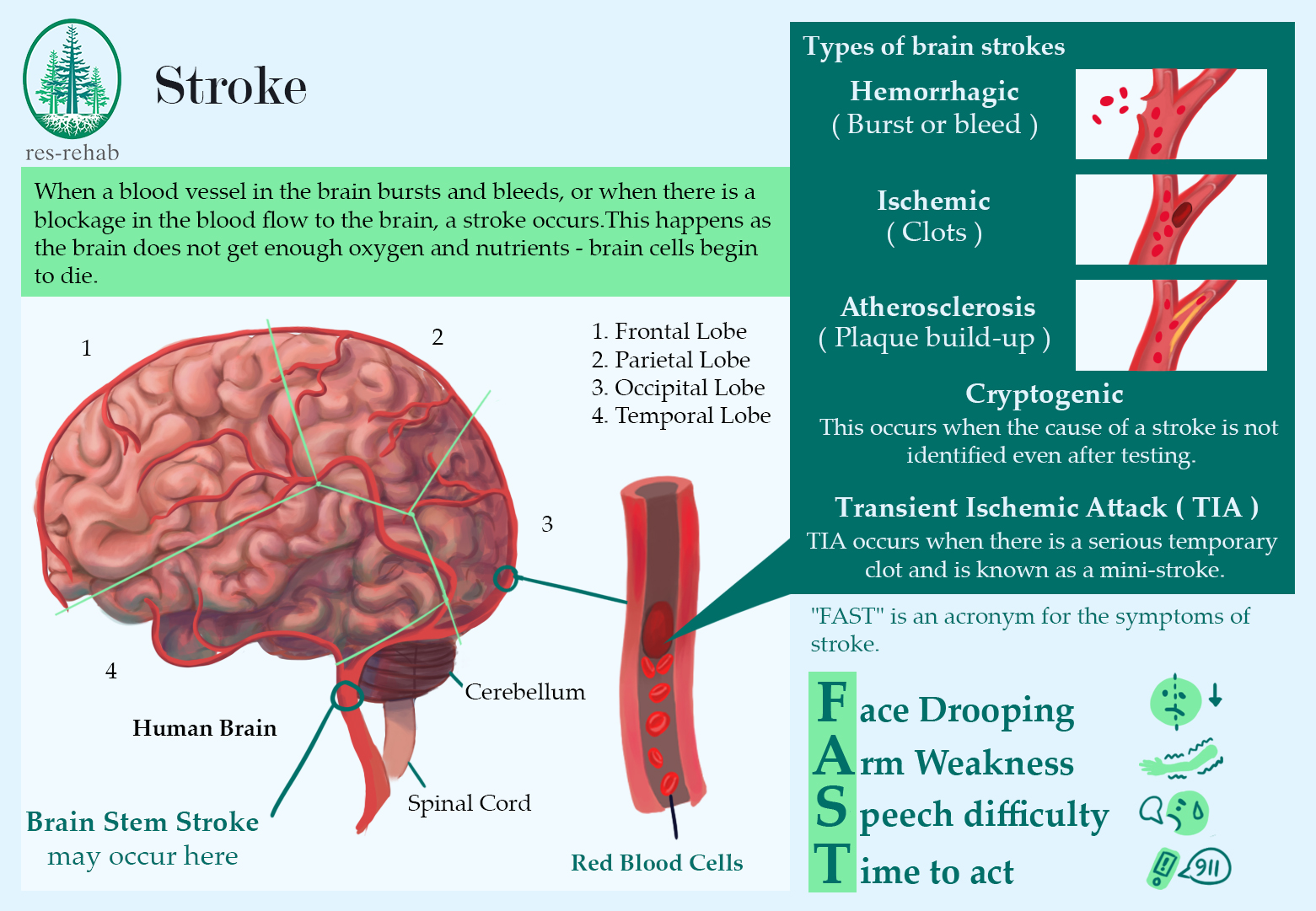STROKE
Problems we treat the non-invasive way
What is a Stroke?

When a blood vessel in the brain bursts and bleeds, or when there is a blockage in the blood flow to the brain, a stroke occurs. This happens as the brain does not get enough oxygen and nutrients – brain cells begin to die. A stroke is categorised as a cerebrovascular disease. This indicates a stroke affects the blood arteries that supply oxygen to the brain. Brain damage may occur when it does not receive enough oxygen.
Stroke is a medical emergency because the brain is such a complicated organ that regulates so many body systems.If a stroke happens and blood supply is cut off to the area of the brain that regulates a certain physiological function, that part of the body will not operate properly. Although many strokes may be treated, some might result in disability or death. As a result, seeking treatment early can help to prevent brain damage and other complications from happening.
Symptoms?
If you suspect you or someone you’re with is experiencing a stroke, pay close attention to when the symptoms started. The term “FAST” might help you recall the signs of a stroke. This might assist a person in seeking therapy as soon as possible. The acronym FAST stands for:
Face drooping: When a person tries to smile, does one side of their face droop?
Arm weakness: When a person tries to lift both arms, does one of them fall downwards?
Speech difficulty: Is the person’s speech slurred or odd when they attempt to repeat a simple phrase?
Time to act: If you see any of these signs, call 911 right away.
The following are the markers and symptoms of a stroke:
- Experience confusion, trouble speaking (slur of words) and have difficulty understanding speech.
- Paralysis or numbness of the face, arm or leg that often affects just one side of your body.
- One side of your mouth may droop when trying to smile.
- Double vision, blurred or darkened vision in one or both eyes.
- A severe headache that may be followed by nausea, vomiting, disorientation, or a loss of consciousness.
- Loss of coordination results in trouble walking such as loss of balance and stumbling.
The following symptoms may also be present in certain people:
- Control issues with the bladder or bowels
- Depression
- One or both sides of their body are paralysed or weak
- Have trouble managing or expressing their emotions.
- Damage to the brain
The severity of the symptoms varies. Strokes can result in long-term health issues. After a stroke, a person may have temporary or permanent impairments depending on the speed with which they are diagnosed and treated.

Find Your Joy of Living
For appointments and referrals, do contact us through the inquiry form
